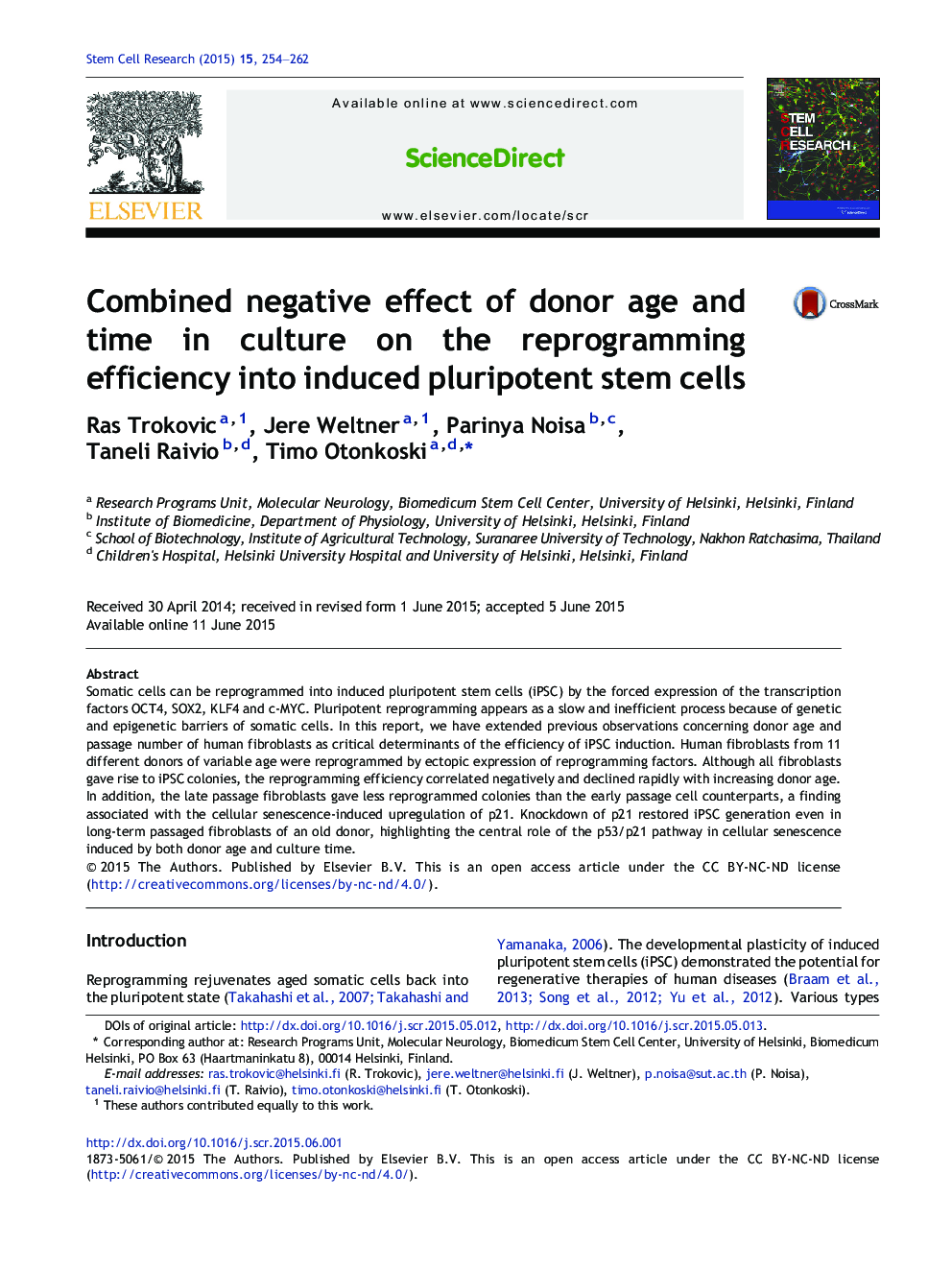| Article ID | Journal | Published Year | Pages | File Type |
|---|---|---|---|---|
| 2094080 | Stem Cell Research | 2015 | 9 Pages |
•Donor age and prolonged cell culture time reduce reprogramming efficiency.•Upregulation of the p21 associates with the donor age and time in culture.•Knockdown of p21 restored iPSC generation in long-term passaged fibroblasts.
Somatic cells can be reprogrammed into induced pluripotent stem cells (iPSC) by the forced expression of the transcription factors OCT4, SOX2, KLF4 and c-MYC. Pluripotent reprogramming appears as a slow and inefficient process because of genetic and epigenetic barriers of somatic cells. In this report, we have extended previous observations concerning donor age and passage number of human fibroblasts as critical determinants of the efficiency of iPSC induction. Human fibroblasts from 11 different donors of variable age were reprogrammed by ectopic expression of reprogramming factors. Although all fibroblasts gave rise to iPSC colonies, the reprogramming efficiency correlated negatively and declined rapidly with increasing donor age. In addition, the late passage fibroblasts gave less reprogrammed colonies than the early passage cell counterparts, a finding associated with the cellular senescence-induced upregulation of p21. Knockdown of p21 restored iPSC generation even in long-term passaged fibroblasts of an old donor, highlighting the central role of the p53/p21 pathway in cellular senescence induced by both donor age and culture time.
